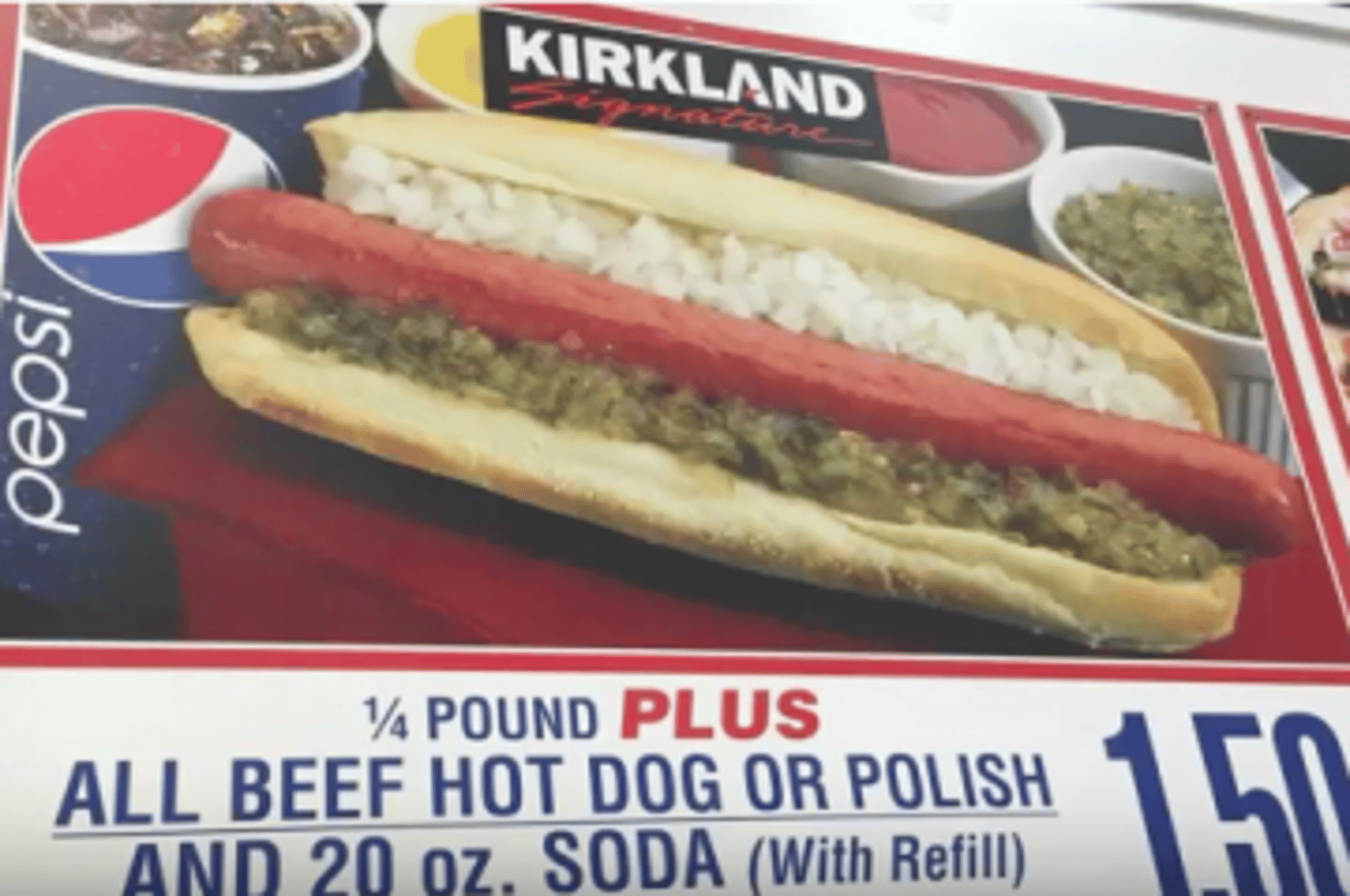Costco Canada has no plans to eliminate Polish hot dog
Costco’s Canadian customers can breathe easy after the warehouse store publicly stated it had no plans to follow the lead of its U.S. parent and eliminate the Polish hot dog from its food court menu.
The Seattle Times reported last week that Costco is removing the Polish sausage from the menu at some stores in an effort to update and enhance its food court offering. That includes more vegan and vegetarian options, including açai fruit bowls and a plant-based protein salad called the Al Pastor Salad.
Food industry blog Food Dive says the changes are being driven in part by health-conscious millennial shoppers, who consume more fruits and vegetables than any other generation (2.7 servings per day according to U.S. trade publication The Packer) and are more likely to prefer a fresh offering to standard food court far such as hot dogs or pizza.
Costco is not alone. USA Today reported last year that Target was testing a new café concept in 14 stores that favoured “artisan style” pizza, fresh salads and pressed juices with beet and carrot over pizza and nachos.
But many Costco customers are upset by the decision and took to social media to voice their displeasure. One North Carolina woman tweeted, “Hey @Costco, if I wanted a healthier vegan friendly option I wouldn’t be at your food court…I go to Costco just for your hotdog lunch some days #SaveThePolishDog.” Another customer called the dog “a national treasure.”
It even led to a petition on Change.org called “Keep the Polish dog on the Costco menu,” accompanied by the hashtag #keepthepolish. The petition was started by a man named Gabriel Galapate, who said he was “appalled” the Polish dog would soon be gone. It had amassed more than 4,000 signatures by Friday morning.
Costco Canada declined Canadian Grocer's request for comment, but did tell its 41,000 Twitter followers on Wednesday that the Polish sausage “is here to stay.”
Our $1.50 hot dog and pop combo is here to stay! https://t.co/YNQkZXlm2P pic.twitter.com/Xof9X6OzIO
— Costco Canada (@costcocanada) July 11, 2018
John Williams, principal with Toronto retail consultancy J.C. Williams, said it wasn't uncommon for companies to be blindsided by consumer reaction to these types of decisions. “They lose not only the sale of the products, but can also lose the shopping basket,” he said. “We used to shop at a
Some people mistakenly interpreted the Times story to mean that Costco planned to completely eliminate the hugely popular all-beef dog hot dog and soda combo that has been a staple of its food court menu since the early 1980s. However, chief financial officer Richard Galanti said that wasn't the case: “The all-beef hot dog remains,” he told the Times.
“They’re keeping some of the stuff that’s bad for you, so they can offer a balanced diet,” joked Williams. Costco reportedly sold 137 million of the $1.50 hot-dog-and-drink combos in 2017, and has even constructed a plant in Central California capable of producing 285 million hot dogs a year.
“
Williams said the so-called “grocerant” concept had become commonplace in retail, but consumers should expect to pay more for healthier food options. “Snack food is becoming an important part of the grocery store shopping experience,” he said. “There’s no doubt that healthier eating is a trend, although it is an expensive one. People have to pay a premium for the right to have organics and healthy food.”

